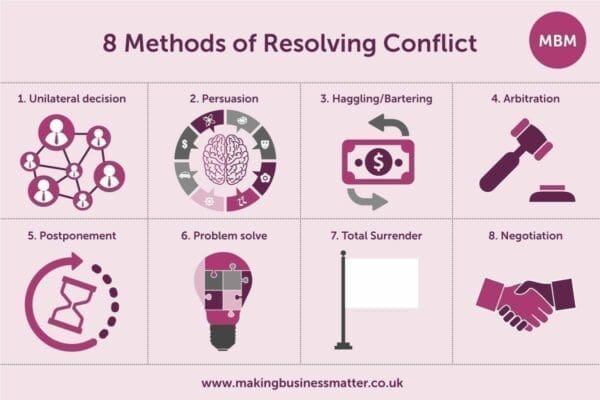Empathy in Employment
The phrase ‘supervisory skills’ sounds rather clinical, at odds with many businesses’ stated concern for their teams’ wellbeing and all that. But if you lead people in work, however compassionate you feel towards them, you’re still effectively a supervisor! Given the pandemic’s lessons about the importance of empathy, it’s time to revisit this essential aspect of business life.
The fundamentals of supervision haven’t changed. To be effective, a supervisor should communicate well, listen, be confident, motivate others and create a culture of shared responsibility. Sadly, in many UK SME’s, the owner-managers fall short on managing people sensitively. And their employees lose out. So, read this article and take the first step to transforming your working life with better supervisory skills.
Supervision Doesn’t Mean Scaring Your Team into Obedience
The word ‘supervisor’ can be problematic. For some, it conjures up bleak visions of harsh overseers and gang masters. Perhaps you prefer to call yourself a line manager, or team leader. But, whatever title you go with, you’ve got people working for you. And you interact with them to monitor their performance and instruct them about the task in hand. Further, supervisory skills are the qualities or traits that enable you to do these things.
Supervision means instructing, guiding, monitoring, and observing employees or workers in your charge. But you don’t have to be remote and aloof about it. Coaching, training, and employee development are among the common responsibilities supervisors assume. And as a supervisor, you need support with coaching, training, and employee development, too!
Our workplaces are becoming more diverse, and a wide variety of people are running successful businesses. Gender, race, sexual orientation, age, and other factors all influence how they supervise their teams. But looking at these businesses, no one’s excluded from to good supervisory skills. Therefore, whoever you are, effective supervision is central to leading your team in creative collaboration.
So What Kind of Supervisor are YOU?!
The experts classify supervisors’ behaviour towards their subordinates under four types of supervision:
Autocratic or authoritarian: You wield absolute power, and demand complete obedience! Everything must be done strictly to your instructions, no arguments.
Bureaucratic: You lay down working rules, regulations, and processes, which your team has to follow strictly. And you make a serious note of any violations. This brings about stability and consistency, but can also lead to delays and inefficiencies. And your team feel the pain.
Laissez-faire or free rein: Another name for this is independent supervision. You give your team full freedom, and don’t interfere in their work. Instead, you encourage them to solve their problems themselves.
Democratic: You consult your team in making decisions. And they are encouraged to give suggestions, take initiative and exercise free judgement. This approach results in greater job satisfaction and improved morale. However, your team members wonder at times where the business is going.

Supervision Literally Means “Overseeing”
As many business leaders and managers have found in the pandemic, the best thing is to take a situational approach. This means flexing with the changing circumstances and drawing on all four kinds of supervision we mentioned just now. But, doing this requires self-awareness, knowing your strengths and feelings. And it involves sensitivity both to your team and your business needs. This is where emotional intelligence comes in. Those supervisors who are comfortable doing this will be winners, and so will their team. Therefore, whatever happens, you are still in charge, and entirely free to step in and be more authoritarian if necessary.
Sticky Learning ® is 7 times more effective than 1-day training courses. Plus, you will get a Chain of Evidence proving your Return on Investment. Discover soft skills training that changes behaviours long term.

What are Good Supervisory Skills?
People have drawn up various lists, which highlight different aspects of supervisory skills.
First, here are 4 types of supervisory skills:
- Leadership skills.
- Communication skills.
- Conflict resolution skills.
- Motivation skills.
Next, these are 7 hallmarks of a good manager:
- Communication and motivation.
- Interpersonal skills.
- Organisation and delegation.
- Forward planning and strategic thinking.
- Problem solving and decision making.
- Commercial awareness.
- Mentoring.
And these are 8 crucial skills supervisors need:
- Communication.
- Interpersonal Skills.
- Organisation and delegation.
- Conflict resolution.
- Leadership.
- Critical thinking.
- Diversity and generational differences in the workplace.
- Problem solving.
The Human Factor
As a supervisor, you are dealing with human beings with feelings. We’ll talk about evaluation and constructive criticism in a moment, when we look at organising and delegating. But, you should bear in mind that all these supervisory skills play an essential role in communicating and motivating.
A Supervisor’s Most Important Skill
One factor the lists we looked at just now have in common is communication. And incidentally, there’s no mention of bossing people around or micromanaging them! You don’t have to be a bully, or in people’s faces. But, what you do have to do, though, is develop your interpersonal skills.

First, you need to interact regularly with your team and assign tasks. This involves explaining and passing on information clearly, so your colleagues understand what to do. Because, as the supervisor, you should also inspire and motivate your people, and lead them towards the overall goal. And, effective communication is the key in all of this.
Now let’s look at these skills in more detail:
Communicating and Motivating
Your overall role is to communicate your goals and the wider vision to your team. At the same time, you oversee the individuals’ performance, provide guidance and support, and identify their development needs. And you manage the relationship between the staff and the business in both directions.
HOW: Effective supervisors need to be able to speak with impact and clarity, and make sure they are understood. They use their listening skills and nonverbal language to improve their conversations. Furthermore, they understand colleagues’ stress and wellbeing and know how to validate people and empathise with them as individuals with real lives. This emotional intelligence is a valuable quality. But, we’ll talk more about it in a moment.
Organising and Delegating
Supervisors need to set goals for performance and deadlines to help achieve the company’s plans and vision. They must organise workflow, and ensure employees understand their duties and delegated tasks. The supervisor should monitor their productivity, and provide constructive feedback and coaching or mentoring.

HOW: Successfully matching people with tasks avoids making mistakes and wasting time on completing tasks, and maintains quality control. Good delegation makes managing people easier too, as they feel satisfied with the responsibilities you give them. When delegating, you need to consider:
- The employee’s skill level
- Their interest and inclination to do the work
- What the deadline is:
- How long they need to complete it.
- The support resources they need.
As a supervisor, it’s important you achieve both completion of the task and employee satisfaction. Depending on your business, techniques like motivation, employee engagement, and rewards for excellence will help your employees feel valued. But, you might feel the fact you’ve given them a job should be motivation enough, they shouldn’t need anything more. So, if that’s the case, maybe you need to think about your relationship with your team!
Giving feedback, aka evaluation and constructive criticism, is as much part of communicating and motivating as of organising and delegating.
Evaluation
It’s important your team know you will be evaluating their performance. Deadlines and appraisals help us focus on tasks and perform better. But you need to handle these evaluations with sensitivity. Do too many, and employees are likely to feel burdened and intimidated. But doing too few will lead to inefficiency and unwillingness to perform.
Constructive Criticism
Providing constructive criticism to a team member is one of a supervisor’s toughest jobs. To do so without triggering the other person’s negativity, you need to mix the criticism with appreciation. Start the conversation by appreciating the employee’s efforts, and then explain the areas where they need to improve. Also, before ending the conversation, again use positive language to soften the impact of the criticism and defuse the negativity.
As a supervisor, the express purpose of criticism is to bring about improvement. Team members who feel valued and cared for will be inclined to make an effort to correct mistakes. But employees who feel undervalued and inferior are less likely to want to improve. Also, people may also have difficulty accepting criticism because of past experiences. Anxiety and other personal issues can also impact our responses. A good supervisor will be prepared for all this, and be able to support colleagues.
War is Over, if You Want it
From employees feeling conflicted after bad experiences, we come to others who want to fight their corner.
Conflict Resolution
People from different backgrounds have widely differing viewpoints, which are bound to cause conflicts between team members. Managing increasing workplace diversity and multi-generational workforces is one of the 8 crucial supervisory skills we mentioned earlier. But, workplace conflicts are unavoidable and natural. At the same time it’s important to resolve them early on, to minimise the damage. If there are recurrent problems, as time passes you may start to notice patterns and the root causes.

HOW: When resolving and managing conflicts, look out for biases or emotions that affect your judgement. And beware of communication filters, which affect how we see issues! We all have them: but yours may be very different from other people! Use positive words and encourage those involved to gain a larger perspective. Shifting perspective can help resolve the most difficult problems. That’s the short term solution. Building from there, look at training colleagues in conflict resolution activities.
Emotionally Intelligent Leadership
Under communicating and motivating, we mentioned the importance of supervisors showing emotional intelligence and sensitivity. The writer Daniel Goleman is an expert on leadership styles and emotional intelligence. So here are his signs of an emotionally intelligent leader:
- Adaptability: Being able to react quickly to new and changing information.
- Optimism: The vision to see the bigger picture in a difficult situation. Getting perspective and keeping moving forward, and encouraging team members to do the same.
- Initiative: The facility and eagerness to take the initiative, and help team members take the initiative too. Being able to identify and cultivate these strengths in others.
- Conflict resolution: Providing team members with opportunities to talk and resolve issues. Airing challenges before things get worse.
- Professional development: Encouraging team members to learn and cultivate new skills. Identifying strengths and areas for improvement.
- Empathy: Not just listening to team members, making them feel heard and understood too. Seeking to understand team members’ perspective, in order to communicate effectively.
- Trustworthiness: Not just good at keeping secrets or confidences. Creating an environment of mutual trust, where team members feel supported and comfortable.
- Self-reflection: Analysing your performance and setting regular reviewed goals. Doing this while encouraging your team to pause and reflect on themselves.
Focusing on these traits will help you cultivate your team’s emotional intelligence and maximise their productivity. It also helps your team members develop their own supervisory skills.
AND FINALLY: A Skills Checklist and Some Reading From Social Services
There’s a lot here to take on board. So to end with, here’s a recap of the 10 most important skills a supervisor must possess:
Written and Verbal Communication
You should have well-developed communication skills.
Decision-Making
Supervisors regularly make important decisions for their team. Use critical thinking to weigh your options and predict the best outcome. Be open to consulting with others.
Interpersonal Skills
Work on being someone whose employees feel open to communicating. Be kind to colleagues, and make a point of getting to know them. With a combination of personal charm and professionalism, you can create healthy work relationships.
Adaptability
Be able to problem-solve at short notice and be flexible in unexpected circumstances.
Time Management
As a supervisor, you’re likely to need to manage many tasks at once. You must be able to prioritise and delegate and know how long tasks will take to complete. Supervisors should also be conscientious about coming to work and staying until their work is done!

Conflict Resolution
In these situations, it’s your responsibility to find a solution and calm everyone down so they understand the others’ perspective.
Co-operation
You know when to step back, collaborate and listen to your team and discuss things with them.
Mentorship
Your role includes helping your team succeed and advance their careers. You support them in challenging situations, and guide and encourage them towards their goals. But, be open to your team giving you new insights as well!
Positivity
It’s down to you to create a positive work environment. By doing so, you’re encouraging other to do the same. When challenges come, show the team you are confident you’ll overcome them. When you are successful, be sure to give them positive feedback and recognise their hard work.
Willingness to Learn
An effective supervisor always wants to gain more knowledge. Learn as much as you can about your industry and your role, and share it with your team. Furthermore, sharing your willingness to learn may inspire others to seek opportunities to learn.
If you want further reading about supervisory skills, the Scottish Social Services Council has an excellent, downloadable PDF. ‘What is supervision?’ contains this useful list about the benefits of effective supervision, applicable to everyone:
- Greater individual motivation.
- Understanding of how individuals’ work links into overall objectives.
- More effective time management.
- The ability to plan workloads.
- More effective coordination of work.
- Better two-way communication.
- Reduction in conflict and misunderstanding.
- Learning on the job.
- A lowering in stress levels.
As a supervisor, you need relevant training to maintain and improve your knowledge and skills. But it’s not just about you. Wherever you work, by having supervisory training, you will also contribute to the learning and development of your colleagues. Ask your line manager today!
Action: For even more useful content on people management, check out our ultimate guide on People Management Skills.




